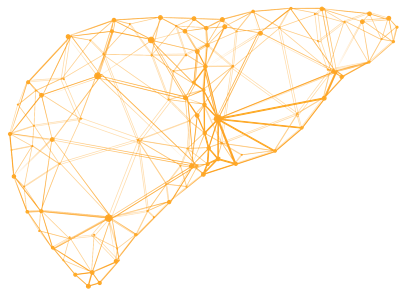Guest blog: Ochre Bio - Love Your Liver Month
For Love Your Liver Month, we speak to Ochre Bio, a liver medicines company developing RNA therapies for chronic liver disease (a top ten cause of death) using a combination of genomics, machine learning and experimental biology on live human organs.
What does Ochre Bio do?
There exists a major challenge: one in four people have some form of fatty liver disease, a silent killer that claims more lives than all cancers combined. It often goes undiagnosed, and it’s on the rise.
The condition also has an unwelcome afterlife: fatty livers can’t usually be donated. Instead, they’re discarded, adding to an already critical shortage of transplantable livers. One in six patients who suffer liver failure (mainly as a consequence of age or obesity) die while waiting for a transplant, and it’s estimated that by 2030, over half of donor livers will be discarded.

Enter Ochre Bio. Our start-up hopes to tackle this issue using genomic medicines to switch off fat-causing genes, with a starting point of rejuvenating marginal donor livers to make them transplantable - and thus improve outcomes for patients.
We’re working towards this goal using a strategy called RNA inhibition, a breakthrough in the field of precision medicine. Leaning on this technique, we leverage deep phenotyping (or ‘phenomics’) to scan livers that have been donated and deemed unfit for use in transplants. We then digitize the information gathered into a crunchable data set.
How does the technology work?
Ochre Bio’s approach is firmly rooted in computational and systems-driven learning, relying on machine learning (a subset of artificial intelligence) to analyse vast troves of data quickly and cheaply. Deep phenotyping combines machine learning with genetics, advanced tissue imaging, and cellular genomics (single-cell and spatial sequencing) to study disease and gene systems at a tissue level.
Our 100% human focus involves the deep phenotyping of human biobanks, genetically perturbed human micro-organs (in vitro) models, and diseased human organs perfused outside of the body. It offers a distinct advantage in the study of fatty liver disease, a complex age-associated, chronic condition that requires more than simple single-target therapies.
How has the technology been used so far?
In collaboration with Oxford University, Ochre Bio has built a complete genomic atlas of the human liver - comprising 1000 livers (from healthy livers to advanced liver disease). This data paints a picture of how fat accumulates over time and also helps to both map out the body at a cellular level and figure out how it functions as fat levels rise. The atlas has already helped us unearth hundreds of novel liver therapeutic targets, which we’re currently investigating.
What's in store for Ochre Bio?
As you’ll know by now, Ochre Bio is essentially a computational drug discovery company capable of validating liver targets and moving safe and effective medicines into the clinic at unparalleled speed. Based on our target selection expertise, we’re positioning the company as the foremost expert in liver, hoping to address the unmet medical need outlined above.
The 1,000 liver atlas was completed early in 2021, and the data will be made publicly available next year. We use this data to train our models to more accurately spot patterns in gene causality and make better predictions. We’re already exploiting the potential of big data to decode liver disease, but with our new Taipei labs, we’ll supercharge our decoding capabilities and identify new targets at an even greater scale than before. This will be announced later this year, and we’re incredibly excited to take this next step!
More blogs and updates
.png)
.png)